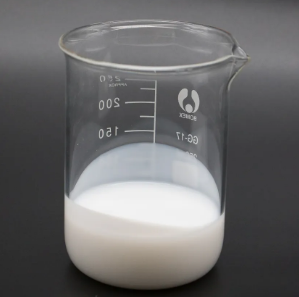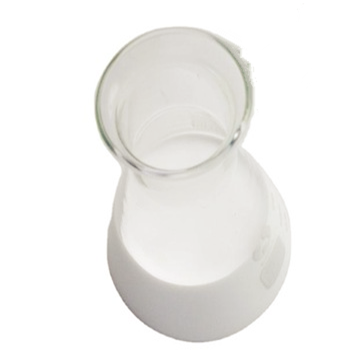Intro to Water-Based Zinc Stearate: Connecting Efficiency and Sustainability in Modern Production
Water-based zinc stearate is an eco-friendly option to solvent-based lubricants and launch representatives, providing premium efficiency with minimal eco-friendly influence. As markets change towards greener production methods, this liquid dispersion of zinc stearate has gained importance throughout sectors such as rubber processing, steel developing, concrete spreading, and polymer manufacturing. Its capacity to give effective lubrication, prevent adhesion, and reduce surface issues makes it a functional tool in modern-day industrial applications. With growing regulatory pressure on volatile organic compound (VOC) discharges, water-based zinc stearate stands out as a clean, reliable, and scalable service.
(TRUNNANO Water Based Zinc Stearate)
Chemical Structure and Functional Device
Zinc stearate is a metallic soap developed by the response of stearic acid with zinc oxide or zinc salts. In its water-based solution, it is normally spread utilizing surfactants or emulsifiers to make certain stability and uniform application. When related to surface areas, the zinc stearate particles develop a slim, hydrophobic film that decreases friction and prevents direct get in touch with between materials. This device is essential in mold and mildew launch procedures, where it assists in simple demolding without harming the end product’s surface stability. Furthermore, its high melting point (~ 120– 130 ° C) allows it to perform effectively under moderate thermal problems, keeping functionality throughout high-temperature processes.
Applications in Rubber and Polymer Processing
In rubber manufacturing, water-based zinc stearate offers dual objectives– as a mold release representative and as an internal lubricant. It protects against sticking between uncured rubber substances and mold and mildew surfaces, making sure constant part high quality and reducing post-processing initiatives. In thermoplastics and elastomers, it boosts flow residential properties during extrusion and shot molding, lessening die build-up and boosting surface finish. Its compatibility with numerous polymers, consisting of polyolefins, PVC, and design materials, even more broadens its utility. Additionally, its non-reactive nature guarantees it does not conflict with treating or vulcanization reactions, maintaining product efficiency features.
Function in Metal Forming and Stamping Industries
The metalworking industry significantly relies on water-based zinc stearate for cool and warm forming procedures. Used as a lubricant in stamping, drawing, and creating, it forms a safety limit layer that decreases tool wear and enhances part surface area top quality. Contrasted to oil-based or wax coatings, it uses far better heat dissipation and cleaner procedure, which is particularly beneficial in computerized assembly line. Furthermore, its ease of elimination after handling– utilizing straightforward water rinsing or moderate cleaning agents– reduces cleaning costs and prevents residue build-up on completed components. This makes it optimal for usage in automotive, aerospace, and accuracy part production.
Usage in Concrete and Building Materials
Within the construction market, water-based zinc stearate is commonly made use of as an internal release representative for precast concrete components. Unlike standard oil-based items, it does not stain surfaces or interfere with secondary treatments like paint or finishing. When blended into concrete or applied to formwork, it stops bonding in between the mold and mildew and the solidified concrete, enabling easy demolding while preserving dimensional accuracy. Its low viscosity allows even protection via splashing or brushing, making it ideal for both hand-operated and mechanical operations. Additionally, it contributes to longer mold and mildew life by protecting against chemical assault and abrasion from repeated spreading cycles.
Environmental and Safety And Security Advantages Over Standard Alternatives
Among one of the most compelling benefits of water-based zinc stearate is its environmental account. Devoid of solvents, VOCs, and toxic ingredients, it straightens with global sustainability goals and occupational wellness requirements. Employees benefit from minimized direct exposure to flammable or hazardous substances, and manufacturers can meet rigorous air quality guidelines without extra ventilation systems. From a waste monitoring viewpoint, water-based solutions are much easier to handle and throw away securely, sustaining round economic situation methods. These characteristics make it a favored selection for business intending to accomplish green accreditations such as ISO 14001 or LEED compliance.
Market Fads and Technological Innovations
( TRUNNANO Water Based Zinc Stearate )
The market for water-based zinc stearate is experiencing steady growth, driven by raising need for eco-friendly commercial options and more stringent environmental regulations. Makers are investing in sophisticated dispersion innovations to boost security, expand shelf life, and boost efficiency under severe conditions. Advancements such as nano-dispersed zinc stearate and crossbreed solutions with silicone or PTFE are being discovered to use exceptional lubricity and temperature level resistance. In addition, smart delivery systems– consisting of atomized sprays and dosing units integrated with IoT– are enabling specific application control, minimizing consumption and functional expenses.
Difficulties and Ongoing Study Directions
In spite of its advantages, water-based zinc stearate encounters specific constraints, consisting of level of sensitivity to water firmness, possible microbial degradation, and lower load-bearing ability compared to artificial lubes. To deal with these issues, ongoing study focuses on maximizing emulsion stability, incorporating biocides for microbial resistance, and enhancing functional performance through additive synergies. Compatibility with various substrates and process conditions also stays a key location of growth. Efforts are underway to customize formulations for particular applications, ensuring regular performance across varied commercial settings.
Future Potential Customers: Assimilation with Smart Manufacturing and Eco-friendly Chemistry
Looking ahead, water-based zinc stearate is positioned to play a central function in the shift toward smart and sustainable production. Its combination with Market 4.0 innovations– such as real-time surveillance, anticipating maintenance, and automated giving– will certainly allow more effective and adaptive manufacturing operations. Advancements in bio-based surfactants and renewable feedstocks will certainly even more enhance its ecological credentials, sustaining decarbonization strategies across supply chains. As sectors remain to focus on source effectiveness and environmental stewardship, water-based zinc stearate stands for a strategic technology that stabilizes technical performance with environmental obligation.
Vendor
TRUNNANO is a supplier of water based zinc stearate with over 12 years of experience in nano-building energy conservation and nanotechnology development. It accepts payment via Credit Card, T/T, West Union and Paypal. Trunnano will ship the goods to customers overseas through FedEx, DHL, by air, or by sea. If you want to know more about zinc soaps, please feel free to contact us and send an inquiry(sales5@nanotrun.com).
Tags: water based zinc stearate, zinc stearate, zn stearate
All articles and pictures are from the Internet. If there are any copyright issues, please contact us in time to delete.
Inquiry us

